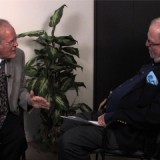We the people must do more than oppose environmental nightmares encouraged and sometimes committed by government.
Most, if not all, of the projects The Common Sense Canadian has been involved in, stack the deck from the outset. None could better make my point than Fish Lake in the Chilcotin area which got past the BC Environmental Assessment process like a hot knife through butter.
A federal review panel has has found major faults with the project – in terms of impacts on the environment and First Nations who depend upon it – but the final decision will be made by the Prime Minister.
Fish Lake is a good place to start for today’s rant but it could have started at any number of other projects.
Before we even consider environmental catastrophes like Fish Lake we must, as a society, make up our minds on this fundamental question: when decisions are made, do jobs and taxes trump the environment? If that’s so, we should cast off our cloak of hypocrisy and say so, leaving the Ministry of Environment the sole role of determining what rules will govern HOW, not IF the project is to proceed.
As anyone who has attended these public hearings can tell you,
one is only entitled to deal with the “how” not the “if” – unless you’re the company, in which case you are permitted to present for the meeting and for the media glowing descriptions of the benefits of the project with no risk of contradiction.
The companies invariably hold the meetings in out of the way places in halls that would scarcely handle a Sunday School meeting.
All companies committing environmental catastrophes tell us about the employment they will create. In all cases – you can depend on this – the figures are, to put it kindly, fudged. An excellent example comes out of private power producers who talk about the employment prospects from their dams – oops! I mean weirs – where in fact the only employment is for short term construction,
most of the jobs being low-paying and going to people from outside the project area.
After the dam – oops again, I mean weir – the computerized plant has one or two jobs only.
The tax issue is interesting, for when Premier Gordon (Pinocchio) Campbell was asked what was in it for BC with private power projects, he named off HST, corporate income taxes, municipal taxes, and income taxes on employees.
These same benefits would come from building a red light district.
We, the public, must continue to demand proper hearings on environmental issues as a matter of right.
But there is a much larger issue which we’ve all been avoiding: how long can we continue as a society which practices uncontrolled consumption?
For several years I chaired meetings for Metro Vancouver on sustainability issues. These were not hearings in the true sense and weren’t billed as such. They were opportunities to discuss the feasibility of a project or a policy, the object being that the panel of experts and the audience would be able to detail the problems to be overcome for the benefit of the politicians and staff. This was fair enough
because municipalities do provide citizens opportunities to question whether or not to proceed with a project, as any developer can attest!
I only raise this to tell you that at many of the meetings, as I introduced the panel and the subject, I would ask “where does this all end? Do we just continue to grow and grow assuming that there will always be another field to plow up for houses?” The question was never answered.
This is the decision we must make as citizens – and Fish Lake, private power projects, fish farms, logging, and oil pipelines/tankers all in issue now, bring this question into focus.
Rex Weyler, a co-founder of Greenpeace, made this point a few weeks ago at a public meeting. He simply, but provocatively, asked whether or not we can simply go on consuming and expect to have the goods we consume and still retain our environment? And that’s what Fish Lake and other projects I’ve mentioned are all about. For if our philosophy is that failure to “progress” means we must, like a Ponzi* scheme, move on to the next river, the next valley,
the next species still left in the ocean, we will suffer the fate of all Ponzi schemes – we’ll implode.
We don’t have to rip our environment apart in order
to have a prosperous society, as many world societies – Holland, Belgium and Switzerland come to mind – demonstrate. We are a resource-based economy because we can be not because we must. Fish Lake, private power companies, logging companies, fish farms and piplelines/tankers teach us that the resources we can now exploit
are no longer far away, thus safely out of mind – but still just around the corner.
Unfortunately, 200 years or so of ever-increasing exploitation of resources have created a society that doesn’t want to change. It’s like the fishermen in Newfoundland when their fishery was closed – they demanded the right to do what past generations had always done even though there were no fish left.
Our society wants to fish where there are no fish left, just as we demand the right to mine no matter where the ore is, or the environmental cost of so doing;
we want to log because that’s what we’ve always done; we want to destroy farmland for new neighborhoods and shopping centres just as always has happened; we want the right to fish and destroy habitat at the same time and we want to risk serious and permanent damage where pipelines and tankers go.
The case is irrefutable – we cannot continue this way.
Instead of saying “let’s find new ways to live and earn the money to do so; let’s really learn how to conserve; let’s stop our imbedded habit of built-in obsolescence so that we can use products longer”, we are in denial.
Instead of meeting a very obvious problem head-on and looking for solutions we will carry on until the last fish is killed.
Fish Lake is a message, a symbol that we do have to stop somewhere, re-group and look for ways to re-cast our society so we can live well without destroying our precious environment.
* A Ponzi scheme is an investment fraud that involves the payment of purported returns to existing investors from funds contributed by new investors.







